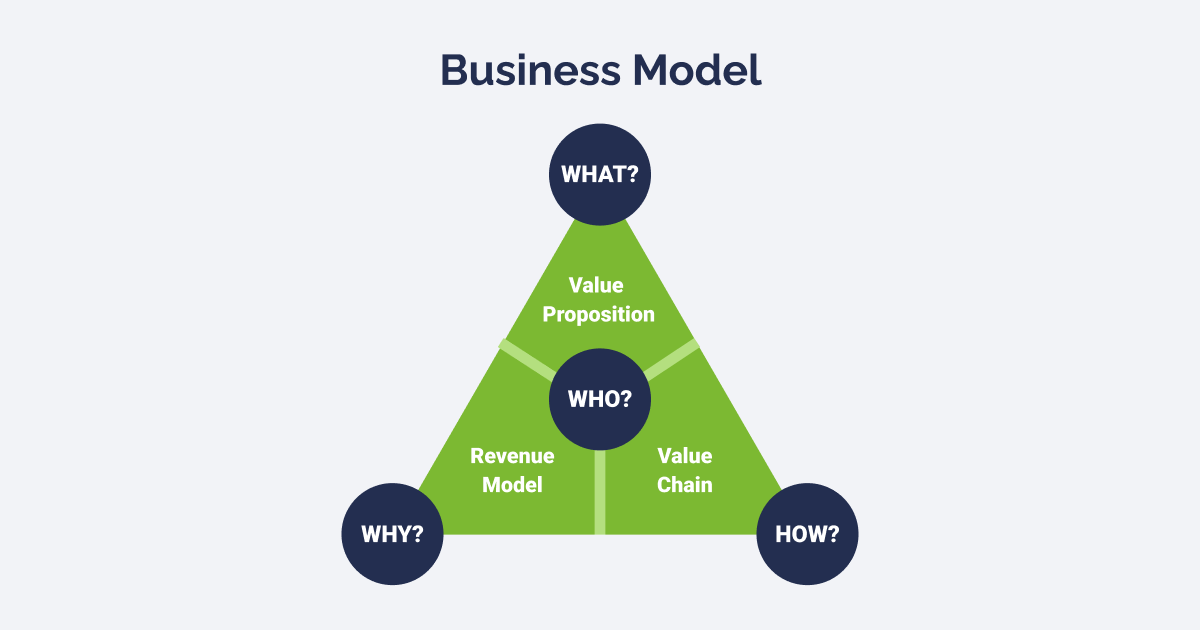Choosing the Right Business Model for Your Startup
While starting a business, the founder doubts its conception, profitability, etc.
To dispel doubts and strengthen competitiveness, it is advisable to find answers to the following:
- What problem does your product or service decide?
- Is there any market with potential customers who could purchase your product?
- Which business model for startups is suitable?
Below you will read what sorts of business models are applicable for company performance, and which of them are better to choose.
What business model is
A business model is an approach a founder follows to perform his/her business activity and gain profit. How you deliver the product's value to your audience also refers to a business model.
What is important to remember? The business model is a key element of a startup, but it does not always stay the same. The approach acts as a litmus test that enables to understand the value of the startup in the long term. Besides, for a better understanding of the business's profitability, it is possible to vary your business model, choosing a sufficient one.
Don't confuse the business model with the business plan! The latter means a detailed plan of the company's development and some steps towards its realization.
The most popular business models
There are many business models in the world, but for the beginner, it is better to rely on the traditional nine types. By choosing one of them, you can customize it according to your business's tasks and peculiar features.
Advertising
The advertising business model has been existing for quite a long time already: from the first printed publications in early times to the blended and online formats of today. The approach is impossibly simple: the users are offered certain content, and readers' focus is monetized by selling advertising spaces.
Partner marketing
An equally standard business model is partner marketing. Being a part of an affiliate network, a founder can promote their own product by paying the commission. A bright example of partner marketing is Amazon.
Franchising
The business model of franchising is mainly applicable for the offline type of business. For example, the networks of restaurants that operate under a license. This model is optimal if the task is to scale the business.
Freemium
Freemium is a business model that suggests that essential services or a product are provided free of charge, and the payment is taken for extra options or a premium version of the product. Such a format is applied in the field of software development, where developers provide users with free tools, but the improved versions are charged.
Razor & Blades
This type of business model for a startup got its name after that very product – a blade for the razor. It suggests that one part of a product is sold at a price well below its cost of production. This is done in order to increase the volumes of sales of other parts or services.
Flip side
Here the approach is reversed. In other words, you initially sell the goods at a significant markup, then promote components to it at a low price. All the products can be united into one ecosystem for successful use.
Subscribtion
Perhaps, each of us enjoys the benefits that are monthly paid. These might be online journals or magazines, programs or applications. By paying a monthly fee you keep exploring the content.
Agency
The business model of an agency works well if your product attracts paying customers and you provide your services to them for the fee. It is not as easy as in the business model of subscription to scale your business, but there are real chances to obtain substantial income.
E-commerce
Starting an online outlet is in great demand. This is a real opportunity to gain income in a fairly short time.

How to choose a business model that suits you best
The right choice of a business model for startup is the very thing the success of your business project depends on. What exactly to consider?
- Take into consideration the needs of your customers;
- think thoroughly the ways of selling to your clients;
- analyze your competitors and market prospects;
- outline the value of your product coherently;
- think of several sources of income in advance.
Following the advice on launching startups, you will be able to create a successful, manageable, scalable business by applying one of the business models described above. It is vital to be flexible and if necessary, to combine features of different business models; this will help adapt to the market challenges and withstand competition.
Read also: Technical documentation for IT startups
Software Development Hub has a tremendous amount of software development services for startup. We convert ideas into growth with 100+ like-minded software, web, and mobile engineering experts. Digital health, education, e-accounting, home automation, and security are only a few domains the SDH team has strong expertise. More than 9 million people are using software products developed by the SDH team worldwide. Stay ahead of the competition with our expertise!
Categories
About the author
Share
Need a project estimate?
Drop us a line, and we provide you with a qualified consultation.








